Saudi Kingdom Agriculture: Trade Liberalization and Global Economy
VerifiedAdded on 2022/10/02
|5
|699
|418
Report
AI Summary
This report examines the effects of trade liberalization on the agricultural sector of Saudi Arabia within the context of the global economy. The analysis highlights the diversification of food consumption patterns due to international trade and technological advancements in farming. It discusses the Saudi government's financial support through subsidies, interest-free loans, and land distribution, while also addressing the critical issue of water scarcity in the predominantly arid region. The report delves into the current agricultural policies, particularly the shift towards fruit and vegetable cultivation, and its implications for groundwater sustainability. It proposes the implementation of water demand management options, investment in water reclamation, and desalination initiatives to ensure long-term water resource sustainability. The expected outcomes include the prevention of groundwater over-exploitation, sustainable water use, and the avoidance of potential food insecurity. Finally, the report emphasizes the importance of irrigation projects to boost farming outcomes and ensure food security.
1 out of 5
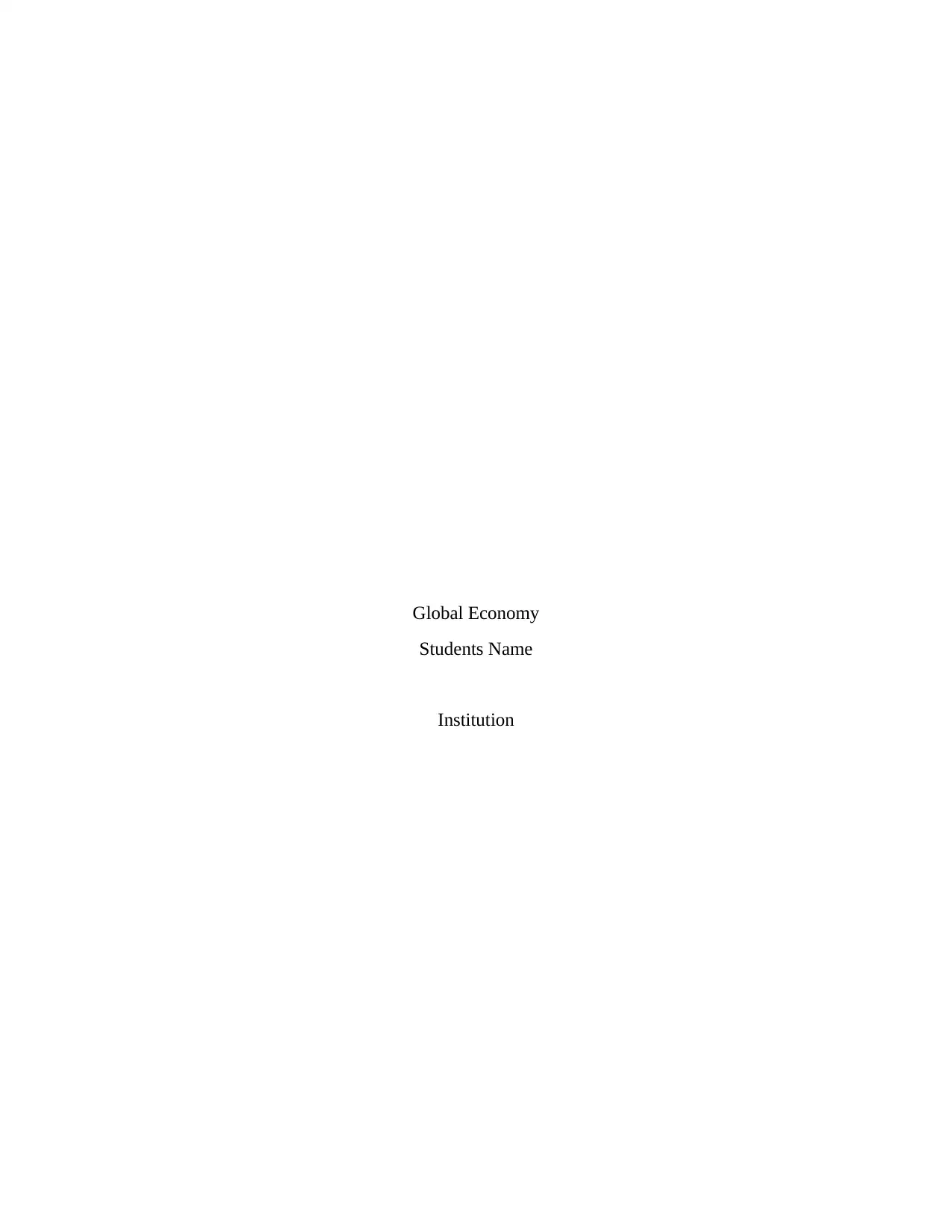
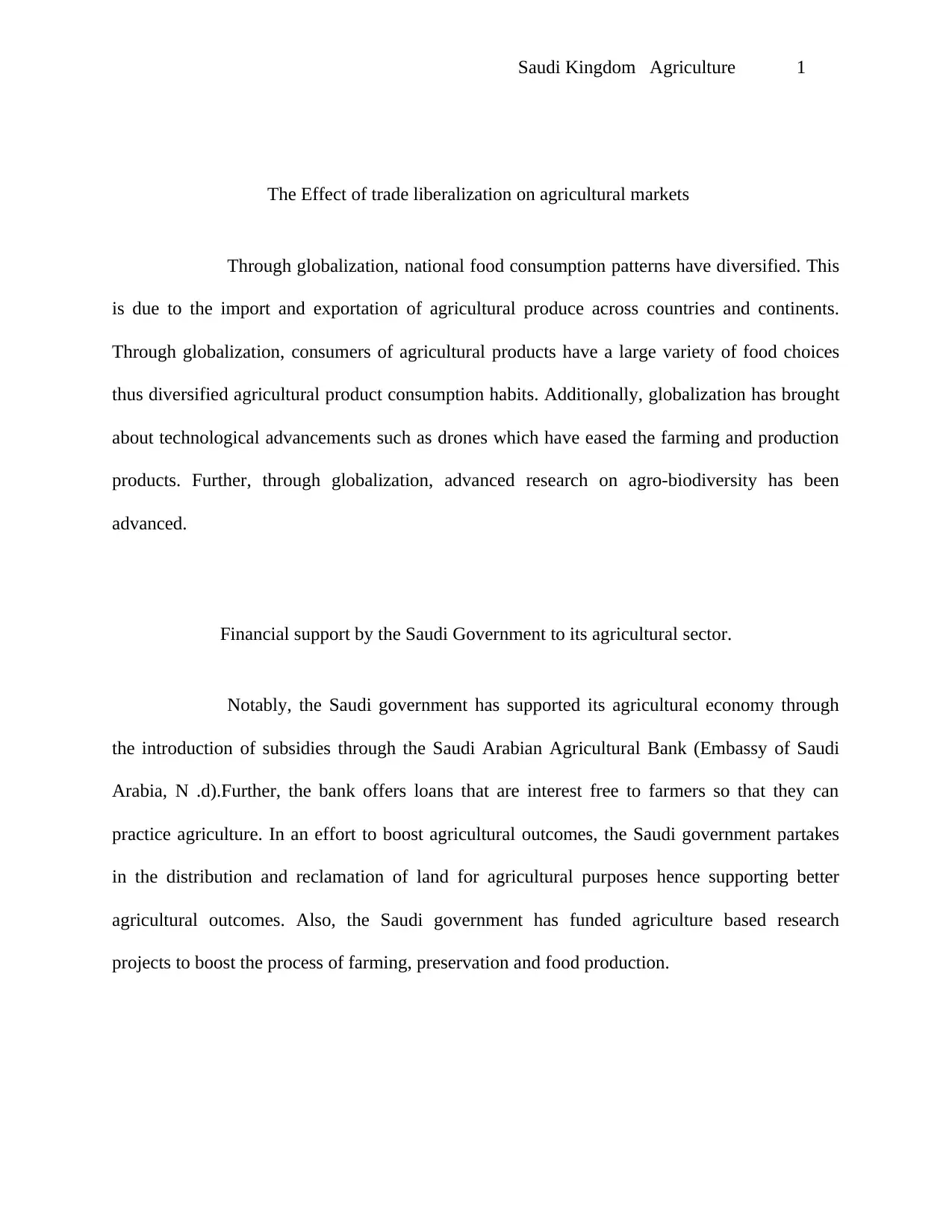
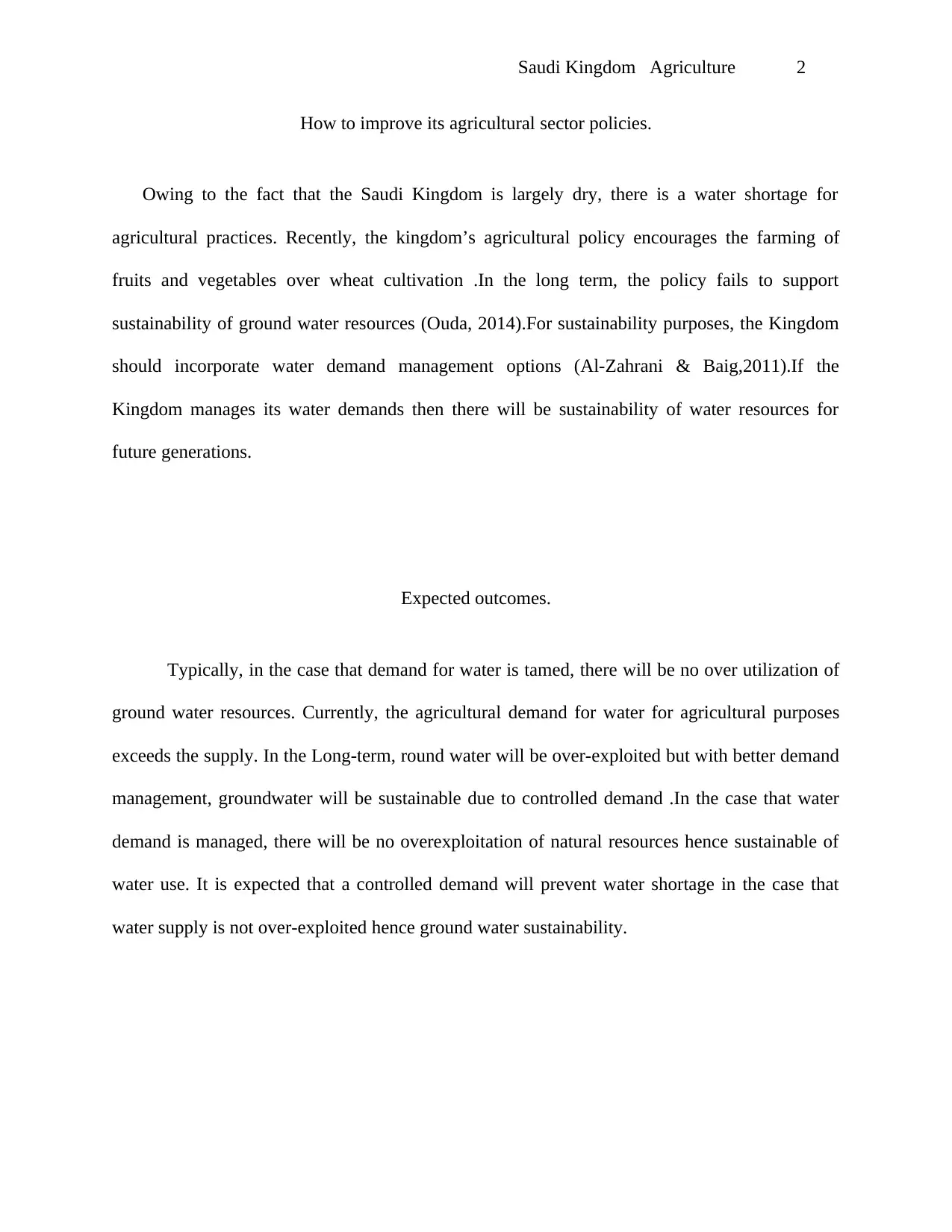

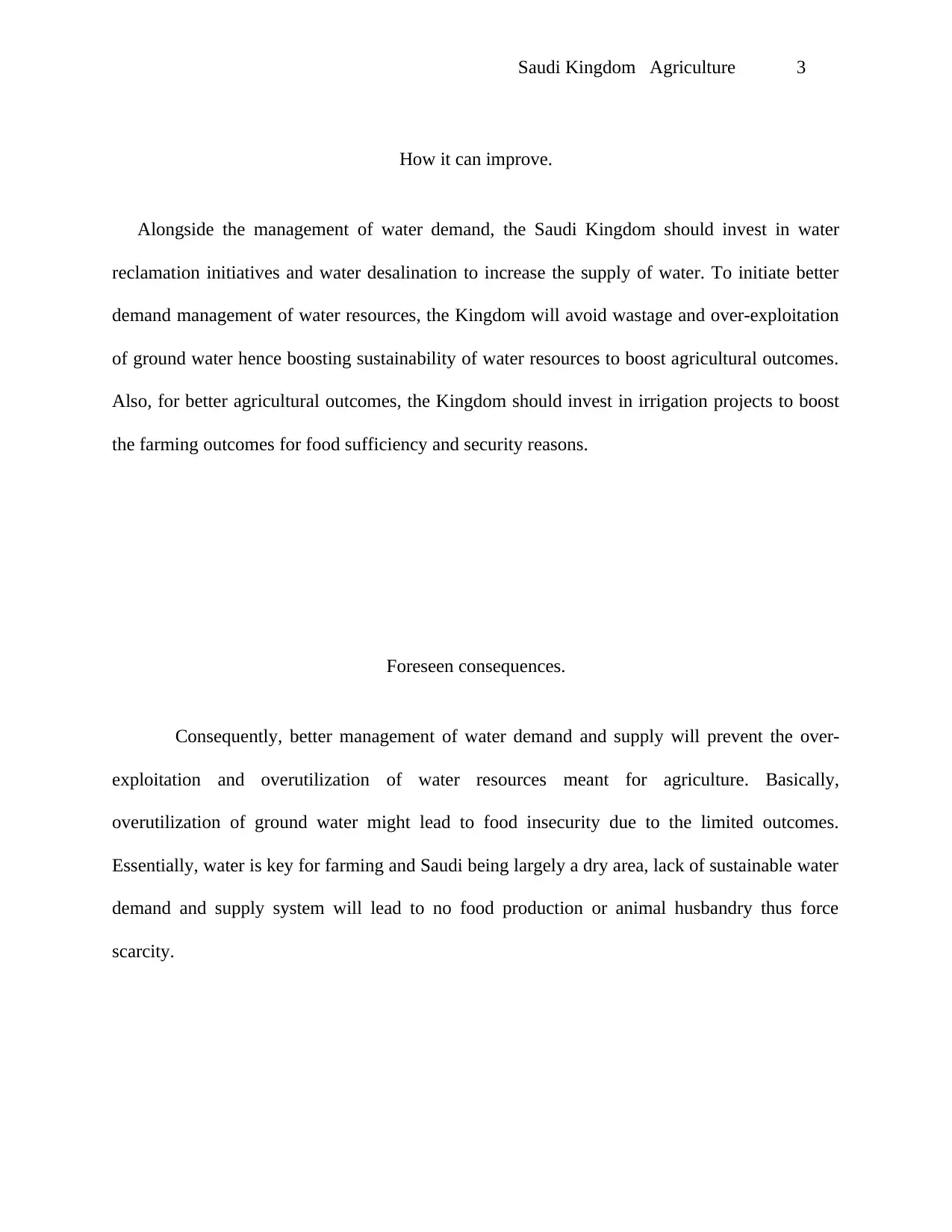
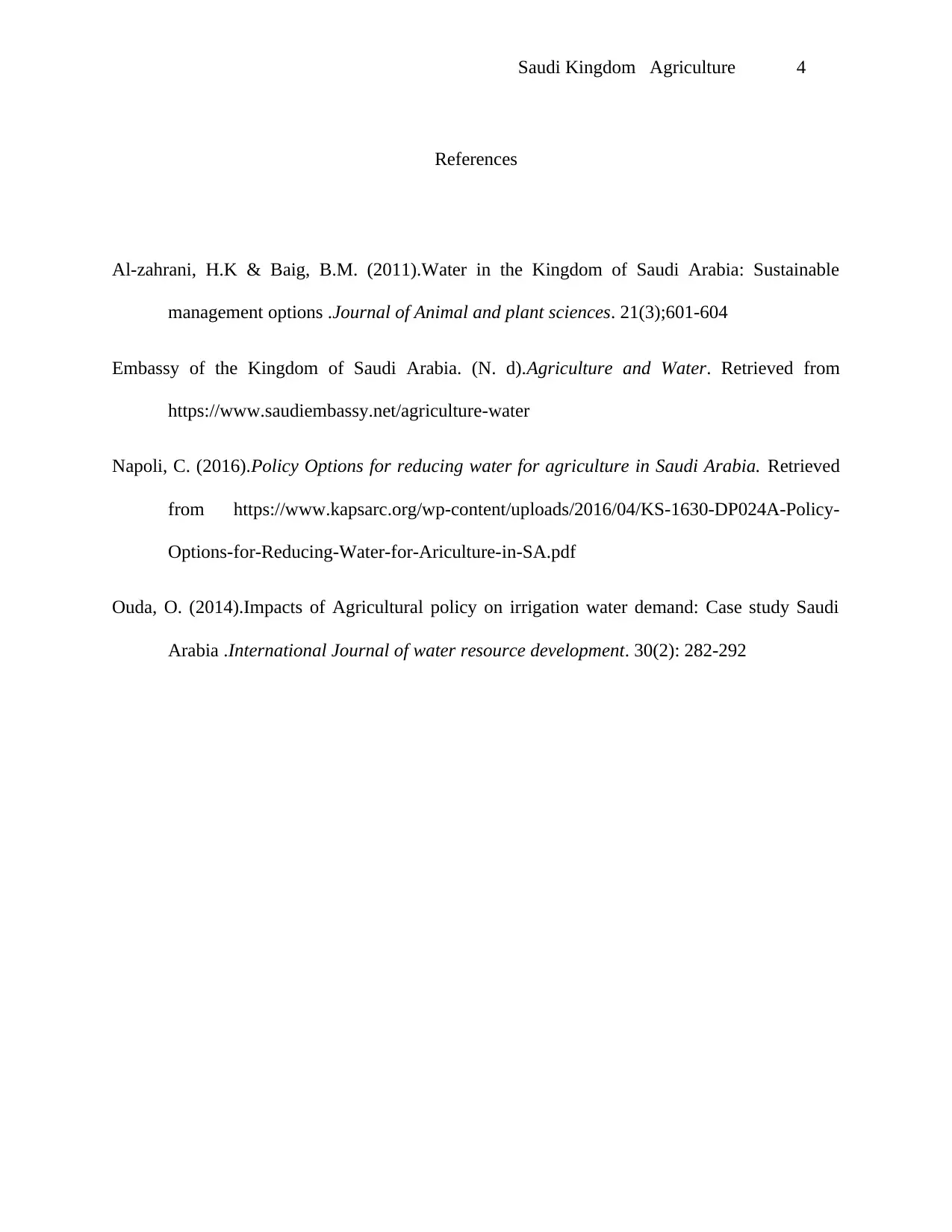






![[object Object]](/_next/static/media/star-bottom.7253800d.svg)